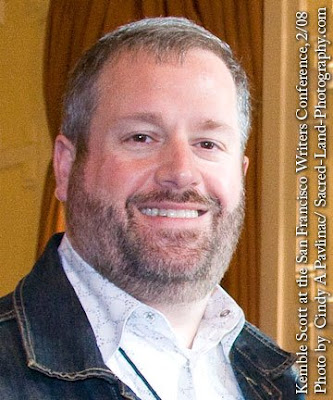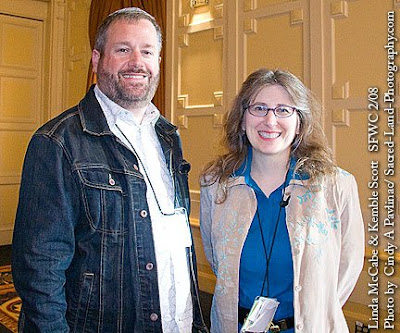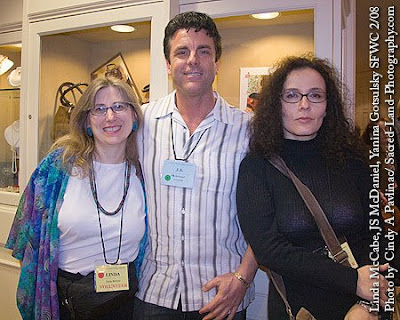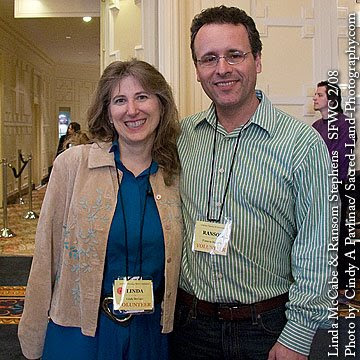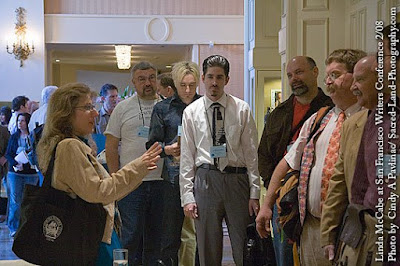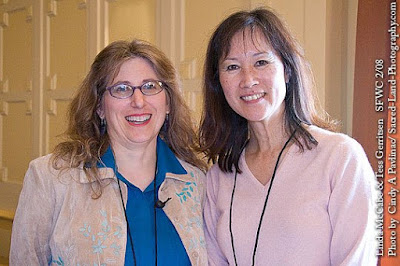I gave the flippant reply that I thought the stories ought to be true.
Facetious or not, my remark actually led us off into a good discussion about how a writer needs to be careful when writing about other people's lives (especially living people) when you are writing about your own life.
Another meeting of my writers club had one of our members mentioned she was writing a "nonfiction memoir." I thought it was funny because of its redundancy.
However, I am now beginning to believe that perhaps it is a distinction that needs to be made.
A week or so ago I read about an author admitting that her memoir was fiction. That the supposed Holocaust survivor was not Jewish as she had contended and had not been raised by wolves.
The story of Misha, she said, "is not actual reality, but was my reality, my way of surviving."
I was disgusted that someone would take the real tragedy of the Holocaust and then try to profit off of it by making people believe in a faux reality.
Then a few days later I read another story of another author who fabricated a story and passed it off as truth.
She claimed to be half-white, half-Native American, being raised as a foster child in South-Central Los Angeles and growing up as a drug runner for gangs.
Margaret Seltzer's charade did not last very long because her sister saw a feature piece that ran in the New York Times and called the publisher to alert them of the truth.
After reading the newspaper article about Margaret Seltzer admitting to her fraud, I began ranting about ethics in publishing to those who were sitting next to me. They got an earful whether they wanted to or not.
I am sick of writers who lie to get ahead.
That is the heart of this issue when writers such as Margaret Seltzer and Monique de Wael devise elaborate stories and then pass them off as reality rather than fiction. They lied to their agents, they lied to their editors, they lied to reporters and everyone else in order to sell their books.
The question in my mind is: why would anyone do such a thing? Are they so delusional that they believe this alternate reality or did they just think it was an easier path to publication?
According to this article in the Register-Guard, Seltzer said publishers “didn’t want to buy it as fiction.”
That implies that she actually tried to sell her book as a novel first and then after being tired of rejection decided to pursue a different path to publication.
I doubt that is true because it would mean that her literary agent, Faye Bender, tried selling it as a novel and then colluded with her by repackaging work that Bender knew was fiction and sent it out again to different editors as a memoir. That would mean that Bender assisted in perpetrating a lie and I cannot see any reputable being willing to risk their career over the sale of one book.
That statement by Seltzer also contradicts a passage in the New York Times where it mentions how she got an agent:
It does not sound like Seltzer quickly found an agent due to networking with other writers and that she never tried submitting her work in the fiction market before choosing to go down the road of serial lying. Instead it appears more likely that she is grasping at any convenient excuse to shift blame onto the publishing industry rather than accept responsibility for her actions.
Ms. Seltzer said she had been writing about her friends’ experiences for years in creative-writing classes and on her own before a professor asked her to speak with Inga Muscio, an author who was then working on a book about racism. Ms. Seltzer talked about what she portrayed as her experiences and Ms. Muscio used some of those accounts in her book. Ms. Muscio then referred Ms. Seltzer to her agent, Faye Bender, who read some pages that Ms. Seltzer had written and encouraged the young author to write more.
In April 2005, Ms. Bender submitted about 100 pages to four publishers. Ms. McGrath, then at Scribner, a unit of Simon & Schuster, agreed to a deal for what she said was less than $100,000. When Ms. McGrath moved to Riverhead in 2006, she moved Ms. Seltzer’s contract.
Nathan Bransford asked his readers as to what we thought should be done with cases like these.
My first reaction as to what the industry should do with them deals with the dishonesty. If I were an agent, an editor, or a publisher I would have a hard time working with someone I realized had been lying to me. It would be difficult if not impossible to have a long-term relationship with someone you do not trust.
This is borne out by a quote from the editor at Riverhead who said,
“It’s very upsetting to us because we spent so much time with this person and we felt such sympathy for her and she would talk about how she didn’t have any money or any heat and we completely bought into that and thought we were doing something good by bringing her story to light,” Ms. McGrath said.
“There’s a huge personal betrayal here as well as a professional one,” she said.
I doubt that either Seltzer or De Wael will have any future as writers since it is now well known that both women went to extensive lengths to fool people.
I would not mind seeing them sued for breach of contract (or for knowingly misrepresenting themselves) and for the publishers to try and recover damages. There may not be any real damages from the Misha book since it has been on the market for so long and has hopefully earned through its advance years ago.
That is definitely not the case with Love and Consequences which was just launched. Obviously any book that is published represents an investment in time, effort, resources, etc., by a publisher. Even if they were to recover their advance from Seltzer (reported at $100,000), I doubt it would cover all the other expenses incurred in its publication.
I do not think that the publisher should necessarily recall and destroy the books in question. I am assuming since Love and Consequences garnered positive reviews and even a profile in the New York Times that it was well written and "a story well told."
Is that not what we really want? A story well told?
The human race has been programmed from the beginning of time to listen to stories; some are history, some are parables, and some are just good yarns. We want to be entertained and to be moved emotionally whether or not it is based on true events.
Truth can be stranger than fiction, but readers want to know whether or not it is truth *or* fiction.
Most books that are published unfortunately have a short shelf life. They are published, distributed, shelved and after a few months will either earn their keep for repeat purchases by bookstores or be returned in order to make room for new titles.
I would have no problem with the publisher having a disclaimer slapped on the cover and ask that bookstores reassign the shelf designation to New Releases in Fiction. As long as the customer is aware of what they are buying, what is the harm in that?
It is not the first time that memoirs have been revealed to be false. Not just James Frey-styled exaggerations, but false in their entirety.
The Education of Little Tree was published as an autobiographical story, but was later revealed, after the death of its author, to be fictitious. The book garnered enough acclaim that it was repackaged as a novel. It is still in print and selling well. At this moment in time it is ranked #7,945 on Amazon.com. Not bad for a book originally published over thirty years ago and has been the subject of public controversy.
There is now such a blurring of the lines between the literary techniques in novels and memoir that I feel sometimes it is not always the fault of the author when there is confusion. For example, last Christmas as I was browsing in a Barnes and Noble store I found Stephen Clarke's A Year in the Merde in the travel essay section. It was shelved near Peter Mayle's books on Provence and Rebecca Ramsey's French by Heart. So I thought Clarke's book was a light, humorous memoir similar to Mayle's and Ramsey's. It's not. Clarke's book is a novel, which incorporates his love/hate relationship with France based on his time living there.
My husband had no such confusion when he was reading the book because he just dove right in and enjoyed it. He knew instinctively that it was a novel, but I was still a bit confused because it was written in first person POV and well, it could have been a memoir and a blurb on the back cover from the New York Post calls it an "almost-true memoir."
It was only after reading the FAQ’s on Clarke's website that I really understood that it was a novel.
Q: How much of the books is true?
A: Because this question was being asked so often, I decided that I needed a definitive answer. So I asked for my novels to be analysed by France’s famous INSL (Institut National des Statistiques Littéraires). It took them several months, but they eventually came up with an answer, which was 64.3%. What this means is that any event in one of my books is likely to be 64.3% true – on average, of course. Some events might be 100% true, others zero.
Note: this compares to 75% for the average biography and 69% for an autobiography (which drops off to 47% for a politician, actor, sportsman or pop star).
Q: Have you ever owned a tea shop in Paris?
A: No. I did once toy with the idea, but gave up when I realized I didn’t want to spend my days listening to French people mispronounce “fruit cake”.
The question of how much of it was true was the first question on the page, so it proves that I am not the only one to be confused about whether or not his book was a novel. I blame my confusion on the shelving, but I realize that I might never have found the book if it was in the literature section. It was the publisher’s decision to list "Travel" as the category on the back cover rather than novel or humor, but it is not a travel essay book.
Regardless of any initial confusion on my part, the book is a damned good read and I am glad I bought it regardless of its genre.
Writing is such a difficult craft that the humanitarian in me feels that talented writers should be not be banned forever from this creative life, but should somehow be redirected to utilize their talents appropriately. I just don't know if it is possible in cases such as Seltzer and De Wael due to their serial lying in order to achieve success.
The real downside is that the book buying public might become averse to buying memoirs in the future because of these scandals. Publishers might also become hesitant in publishing memoirs.
I am not going to say that publishers should hire private investigators or have in-house fact checkers, but there are voices who are calling on the publishing industry to do just that. The reality is that it might just be too expensive for that.
Instead, I could envision new clauses being written into book contracts in response to these cases in the hopes of indemnifying the publishers should they unwittingly enter into another hoax memoir. Possibly asking for monetary damages if claims are shown to be false or fabricated in the future. I do not know if that will happen, but I would not be surprised if it did.
On a related ethical subject, I feel compelled to say that my good will does not extend to writers such as Cassie Edwards who have been exposed as plagiarists. I am puzzled as to why her publishers have not recalled the books which have been demonstrated to have many troublesome passages. To me it is just wrong to continue selling those tainted books.
Please weigh in on your thoughts as to whether or not you think that there is any truth to perception that publishers are more likely to accept stories such as Seltzer's, Frey's, De Wael's as memoirs than as novels. Also whether or not you agree with my thoughts about publishers reclassifying the genre of books in order to provide “good reads” for the public or if you feel they should just recall them and eat their losses.
